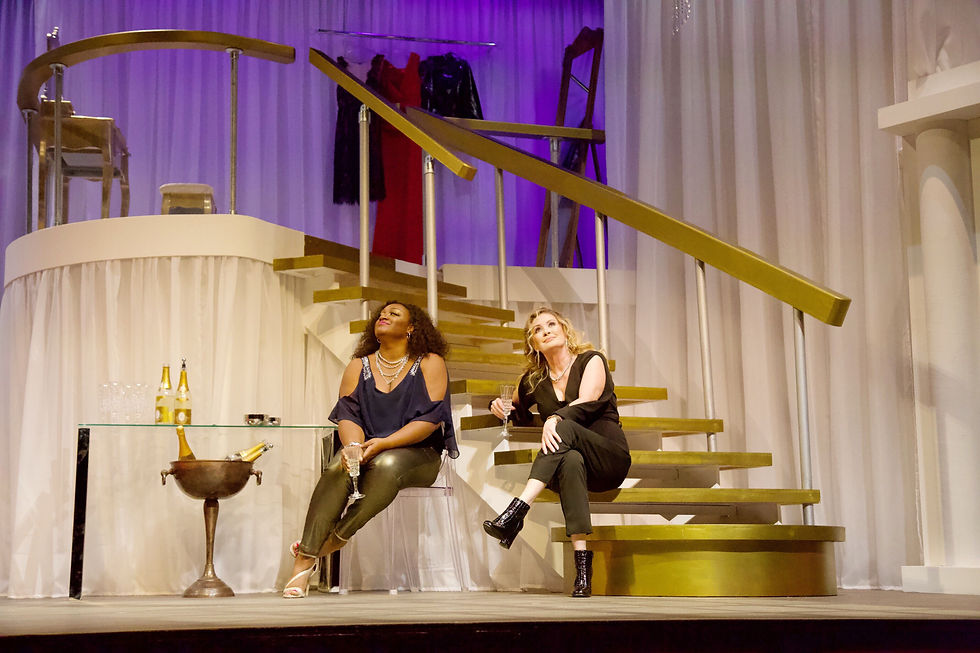The Thunder Girls
- Alan Hulme

- Sep 26, 2019
- 2 min read
Updated: May 28, 2021
Melanie Blake, from her novel of the same title
Lowry Quays Theatre
24 September 2019 - 28 September 2019; 2hr 35min


Based on her recently-published debut novel of the same name, Mancunian Melanie Blake’s own stage adaptation – also her first work for the theatre – draws on her extensive background in the pop music industry.
She worked, her impressive biog reveals, with such luminaries as The Spice Girls and was a manager to members of Steps, Spandau Ballet and The Nolans, so she ought to have the inside track on what goes on behind the glitter…
Her fictional Thunder Girls were big in the 80s but, as is the way of these things, unscrupulous lead singer Chrissie (Carol Harrison) quit her colleagues for a solo career, triggering the demise of the other girls’ careers. She also took manager Rick with her and, worse still, Rick was the boyfriend of band member Roxanne (Beverley Callard).
Now, 30 or so years later – during which time the girls haven’t so much as spoken to each other – Chrissie is hoping to reunite the band for a mega-concert appearance to stave off bankruptcy after being conned out of her savings. She is throwing a dinner party for the girls, but will they turn up?
The first thing to note, for what seems to be something of a vanity project for its creator, is the box office. Gratifyingly for everyone involved in this preview/premiere run, audiences went somewhat berserk and the "house full" signs are out for every performance.
Coleen Nolan and Sandra Marvin make up the central quartet of ladies of a certain age on stage, with author Blake and director Joyce Branagh as creatives: a six-pack of female talent that has clearly appealed in particular to the female theatre-going public.
And the public at the official premiere – which included a considerable proportion of invited guests – was obviously not disappointed as the evening unashamedly played up the age card and peppered the affair with risque jokes and knowing winks.
But it is clearly a work in progress. The first half in particular is vastly over long, going round and round and round again on whether the girls will re-form. The second half has more meaty revelations, but again needs cuts, and the pace throughout is pedestrian: sharper delivery would have helped disguise the shortcomings.
There are some witty lines and a couple of deeper scenes, in which real emotion comes through (in contrast to the more general surface cliches). But if the play is to have a life beyond the Lowry, as it seems it is hoped it will, there’s much work to be done.







